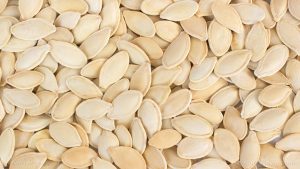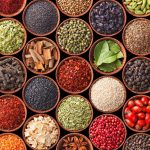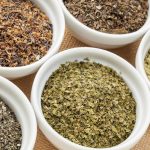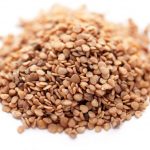
Pumpkin Seeds – sources, health benefits, nutrients, uses and constituents at NaturalPedia.com
Friday, July 21, 2017 by Earl Garcia
http://www.naturalnewsherbs.com/2017-07-21-pumpkin-seeds-sources-health-benefits-nutrients-uses-and-constituents-at-naturalpedia-com.html
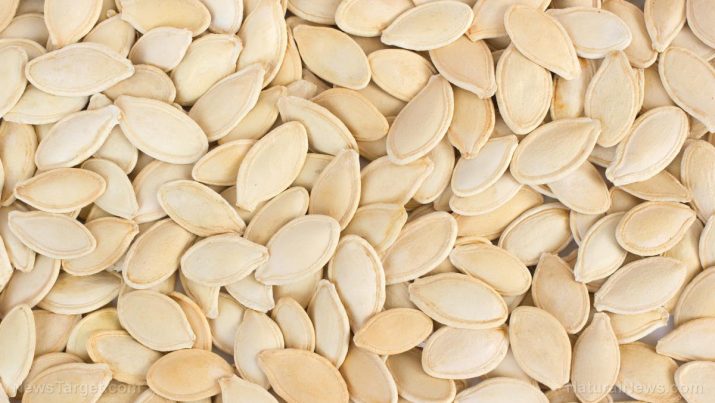
Pumpkin seeds are the kernels of the pumpkin fruit. Popular during Halloween, pumpkins are squash-like vegetables that are native to Mexico. Their edible seeds have been used as food and oil resource for centuries. Some parts in Central Europe are known to cultivate pumpkins specifically for their seeds, which are high-value commodity produce. Pumpkin seeds are nutrient-packed snacks that contain high concentrations of beneficial compounds. In fact, an article on the Mother Nature Network website notes that pumpkins are especially rich in protein and other minerals that bolster the body’s overall health.
List of known nutrients
Pumpkin seeds are nutritious kernels that contain essential vitamins and minerals that improve overall health. The health and wellness website Nutrition and You features a complete list of the important nutrients found in pumpkin seeds.
- Alpha-linolenic acid
- Beta-carotene
- Beta-sitosterol
- Calcium
- Copper
- Cryptoxanthin
- Folates
- Iron
- Lutein
- Magnesium
- Manganese
- Niacin
- Nitric oxide
- Omega-3 fatty acids
- Pantothenic acid
- Phosphorus
- Potassium
- Pyridoxine
- Riboflavin
- Selenium
- Sodium 7
- Thiamin
- Tyrosine
- Tryptophan
- Vitamin A
- Vitamin C
- Vitamin E
- Zeaxanthin
- Zinc
Medicinal uses for pumpkin seeds
Eating pumpkin seeds are found to reduce the risk of developing certain types of cancer, including stomach, breast, lung, prostate and colon cancers. In fact, a study previously revealed that adding pumpkin seeds to one’s diet may help lower the odds of breast cancer onset in older women. According to past research, the lignans in pumpkin seeds contribute to their cancer-fighting properties.
Pumpkin seeds are also known to promote cardiovascular health. The seeds are an excellent source of antioxidants, magnesium, zinc, and fatty acids that help maintain heart health. A past study showed that women who took pumpkin seed oil supplements exhibited significant reductions in blood pressure levels and increases in good cholesterol levels. Research suggests that the seed’s nitric oxide content may play a part in this beneficial effect.
Likewise, pumpkin seeds are found to effectively lower blood sugar levels in patients with diabetes. The seed’s high magnesium content is touted to induce this effect. Previous studies have shown that a diet high in magnesium is associated with a 33 percent to 34 percent reduction in diabetes risk. Aside from this, the seeds’ high magnesium levels are touted to fortify the bones. Pumpkin seeds are notably high in dietary fiber that promotes digestive health and slashes the risk of diabetes and obesity.
In addition, pumpkin seeds are known to ease symptoms of benign prostatic hyperplasia. The condition is characterized by prostate enlargement, which in turn results in difficult urination. In fact, past research showed men with BPH exhibited reduced symptoms and better life quality after consuming pumpkin seeds. Aside from this, pumpkin seeds boast of high zinc content that improves sperm quality and lowers the risk of infertility in men.
Furthermore, pumpkin seeds contain an ample supply of tryptophan, an essential amino acid that promotes sleep. The zinc in pumpkin seeds convert tryptophan into serotonin, and eventually to melatonin. Melatonin is an important hormone that regulates the sleep cycle. Likewise, the seeds’ high magnesium levels are found to induce sleep.
Body systems supported by pumpkin seeds
Pumpkin seeds are beneficial to the digestive, cardiovascular, urinary, skeletal, nervous, and the male reproductive system.
Ways to use pumpkin seeds
Pumpkin seeds are among the most nutritious and versatile seeds that can be incorporated in a wide range of recipes. The seeds can be added to baked goods such as bread and pudding for a hearty, tasty snack. They can also be used as a topping for rice and vegetables. Likewise, pumpkin seeds can be added to various beverages such as smoothies.
Where to learn more
- Pumpkin Seeds – Healthiest Seeds For Your Health
- Potency Of Pumpkin Seeds
- Pumpkin Seeds Shown to Boost Sex Drive
- Eating Raw Pumpkin Seeds Repair DNA, Control Blood Sugar Spikes & Improve Our Sight
- Pumpkin seeds combined with fruit is as effective as prescription sleep aids!
Summary
Pumpkin seeds prevent cancer, heart disease, and prostate issues.
Pumpkin seeds relieve diabetes symptoms and improve male fertility.
Pumpkin seeds benefit the digestive, cardiovascular, urinary, and skeletal systems.
Pumpkin seeds support both the nervous and the male reproductive systems.
Sources include:
Tagged Under: Tags: pumpkin seeds

